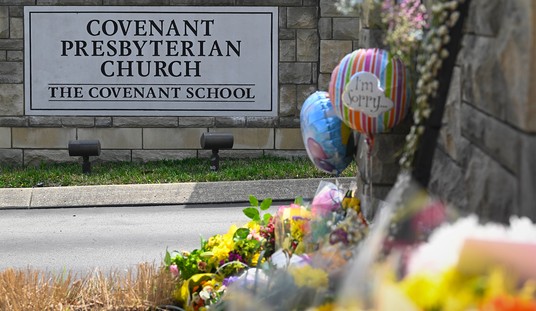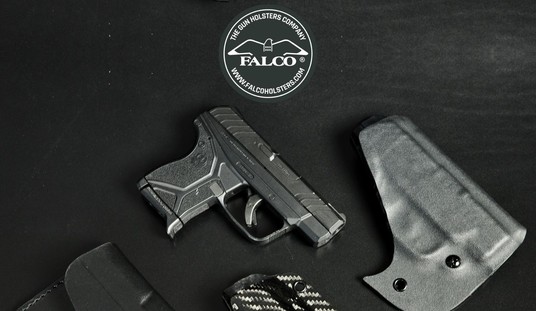If you want a depressing look at how politics is trumping policy in the congressional response to the shooting in Uvalde, Texas, look no further than this report from The Hill on the current state of the gun control debate in Washington, D.C.
While the headline rightly notes that Joe Biden and congressional Democrats are not on the same page in their anti-gun talking points, with Biden pushing for a ban on so-called assault weapons (and maybe even 9mm handguns) and Senate Democrats focused on expanding background checks and giving grants to states to implement “red flag” gun seizure laws (House Democrats have their own legislative package that they’re teeing up, which includes a ban on “large capacity” magazines but no ban on modern sporting rifles), my big takeaway is that even the anti-gun senators hoping to use the horrific events in Uvalde to impose new restrictions on gun owners aren’t pretending that what they’re working on would have prevented that atrocity from taking place.
“It’s really a study of incrementalism, I think that’s what [Sen.] Chris Murphy is doing,” said Ross K. Baker, a professor of political science at Rutgers University, referring to the lead Democratic negotiator on gun control.
“He’s come to the realization that if he leads with an assault weapons ban, it’s not going to go anywhere. To get the 10 Republicans you need to break the filibuster, you can’t lead with a strong right hand. You’ve got to spar a little bit,” he said.
Murphy (D-Conn.) says he wants to get something done that saves lives, even if it doesn’t directly respond to the recent mass shootings in Buffalo, N.Y., and Uvalde, where in each incident 18-year-old shooters deployed AR-15–style rifles.
“Republicans are not willing to support everything that I support, like banning assault weapons. But I really think that we could pass something that saves lives and breaks this logjam that we’ve had for 30 years,” Murphy said on CBS’s “Face the Nation” on Sunday.
Even some gun control activists are willing to hush up about their desire for a gun ban for fear of scuttling the current talks that are underway.
Alex Barrio, the director of advocacy for gun violence prevention policy at the Center for American Progress, pointed out that keeping a proposed assault weapons ban on the back burner keeps Democratic divisions out of the spotlight.
“There are also Democrats that do not support an assault weapons ban. We know that [Sen.] Joe Manchin is one of them. That being said, keeping off the table for now makes sense,” he said.
Sens. Michael Bennet (D-Colo.), Martin Heinrich (D-N.M.), Angus King (I-Maine), Jon Tester (D-Mont.) and Mark Warner (D-Va.) voted with Manchin (D-W.Va.) and every Senate Republican against Sen. Dianne Feinstein’s (D-Calif.) proposal to ban assault weapons during the Senate’s last extended gun control debate, in 2013.
You know who else hasn’t signed on to the current “assault weapons” ban bill gathering dust in the Senate? Arizona Sen. Mark Kelly, the husband of former Rep. Gabrielle Giffords and the co-founder of the gun control group that bears her name. There’s no doubt that Kelly and Giffords back a ban, but Kelly is also running for re-election to a full six-year term this fall and has been very quiet about pushing for more gun control legislation since he won a special election to fill the remaining term of the late John McCain in 2020.
Kelly might not be able to keep his anti-gun opinions to himself for long, however. Anti-gun activists, including Barrio, say they’ll push for a performative vote on banning modern sporting rifles if the Senate doesn’t pass something that the gun control lobby can call a win.
“If Republicans pull back from these negotiations … if the Republicans refuse to do anything and they decide at the end that they’re going to be 50 votes ‘no’ on everything,” even proposals to encourage red flag laws, “then I do think the assault weapons [ban] does need to go on the floor, there does need to be a vote,” Barrio said.
… Christian Heyne, vice president of policy at Brady, a group that advocates for gun control, said, “I certainly think the responsible call to action right now is to call for an assault weapons ban vote.”
“These are weapons with tactical features designed for the battlefield to make these weapons more lethal, which is why they are the connective tissue between so many of these mass-casualty shootings,” he said.
Yeah, about that. According to the FBI’s recent report on 61 active shooter incidents in 2021, 48 of them involved the use of a handgun, while just 10 involved the use of a rifle (several incidents involved suspects with both rifles and handguns, and there were a few instances of a shotgun being used by the attacker as well).
Rifles just aren’t used in a lot of crimes, period. The FBI’s Uniform Crime Report for 2019 documented 364 homicides in which a rifle of any kind was used as a murder weapon. That’s less than the 1,476 homicides in which knives or cutting weapons were used, the 397 homicides committed with the use of blunt objects like hammers, and the 600 homicides committed by individuals using hands, fists, and feet.
Not that any of that matters to anti-gun politicians hoping to use the tragedy in Uvalde to chalk up a win of some sort. What we’re watching play out in Washington, D.C. is a strategy based on the politics of the moment, with public safety a secondary concern at best.









Join the conversation as a VIP Member